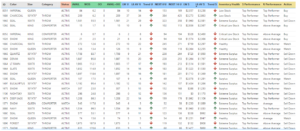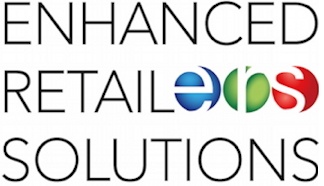By Jim Lewis, CEO, Enhanced Retail Solutions
As the retail industry continues to evolve, inventory planners are on the move. Sinking ships are having a hard time keeping people, and sound retailers and wholesalers are having a hard time attracting talent with a diverse skill set. It ultimately affects inventory management. An often-overlooked option is the outsourcing or consulting model. I know what you’re thinking but hear me out.
The Stigma
Many of the large consulting firms are viewed as people that come into an organization, tell the employees what to do, then walk away with a fat paycheck. I’ve experienced it myself (more on that later). But that’s not always the case, and certainly not with ERS. We actually DO the work and then focus on teaching and training our clients. Maybe that’s self-defeating for ERS, but it’s the right way to do it.
ERS is unique in that we have the flexibility to work with companies at different levels. For some companies we are the planning department, for others we complement their planning team. We bring to the table both retail and wholesale expertise, best practices, short cuts, POS data management, inventory planning and retail analytic tools. We’re not saying that outsourcing is the best solution for every company, but some level of it can bring extraordinary benefits. It can be a company’s competitive advantage because they are getting more expertise and sophisticated solutions at a lower cost.
The Retail Shell Game
Some retailers move people around too often- especially in planning- much to the detriment of their business. It is good to have well-rounded employees but a little more seasoning would be nice. Buyers often rely heavily on their vendor’s planning team, but that may not cover their entire area of responsibility. It’s really a problem of consistency. At one retailer, we (ERS and our client) have worked with 4 retailer planners in just under 2 years in the same department. It’s disruptive and often leads to over and under buying. Having a consultant on staff who can be viewed as a resource at the employee’s disposal could be very helpful.
Needs Assessment
A key element in consulting is the needs assessment. It is exactly what it sounds like- determining what the problems are. The most important part of the needs assessment is listening. Consultants with large egos are not good at this! We learned a long time ago that the smartest employees will tell you exactly what their bottlenecks are. Is it lack of decision making on the part of management, or lack of tools to do the job properly? Or something else? Once we know, we can offer the appropriate solution. In most cases, because we have been doing this for over 20 years, we have a great playbook in which POS and inventory solutions offer the best outcome for each situation.
Short-term vs. Long-term
As a buyer many moons ago, one of the best-known consulting companies (starts with an “A”) was called in to help JCPenney. I was young and eager to learn. While there were some benefits, their recommendations for me had a disastrous effect. Not only did it not improve my business, but it also brought it to its knees. They recommended cutting 40% of the sku’s but did not follow up with any sort of market research or where to invest dollars. It was pure mathematics and no intelligence. We were directed by management to take their words as gospel. I take that to heart every time I make a recommendation to a client- ensuring that I have thought through all the possible outcomes.
Best Practices
Unique to ERS is that we offer both software and consulting. We can recommend a balance of each for every client. Tools can be customized, and then hands-on “use case” training shows how to maximize them. Recently with a new client who manufactures accessories we were able to show them in just a few hours how much missed business they had. Our lost sales solution documented every sku-store combination over time and helps predict which sku’s and stores are most likely to be out of stock. Another button click exports a replenishment order to get back in stock. We then coached them on how to present the data and make a compelling case to the buyer, based on facts.

Track inventory by sku by week by store to find outs and lost opportunity.
Brain Storming
Some of our best tools have been derived by co-creating something with a client. They have a specific problem and want an affordable and sustainable solution. An example is our drop ship ecommerce performance report. It’s really a performance tracker, sku rationalization and buying tool all in one. Our client had a new employee that was just beginning to learn the business, so this tool was devised to lead them in the right direction. Getting it built was no easy task. Data from multiple retailers, wholesale inventory from ERP, a multitude of parameters including seasonality, lead times, and more had to all be integrated. The result has been tremendous and has been in use for over 4 years now. Inventories are balanced and sales continue to increase month after month.

eCommerce performance report with actionable recommendations.
Another example is an apparel manufacturer where we curated interactive dashboards in Microsoft PowerBI to deliver both high level and detailed insights into their business. It’s far more versatile than spreadsheet-based reporting and is accessible basically any time, anywhere on any device.
It’s Not Adversarial
Consulting does not have to be adversarial with in-house employees, in fact it can be quite the opposite. Sure, at the beginning I understand how someone may think they are going to be replaced. But in the vast majority of our engagements it turns out that those are the people that call us the most! They come to rely on us as a valuable resource. After all, we need someone to work with! Without that planner we can’t maximize the company’s full potential!
To learn more about ERS services, contact us.


Comments are closed